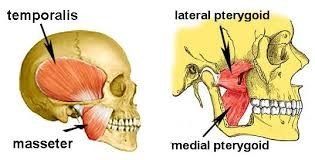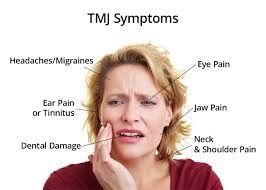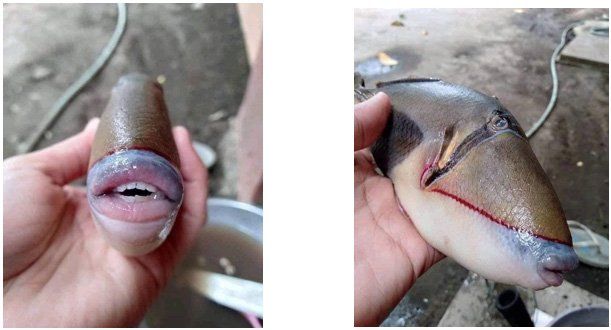When is toothache not toothache?
Posted on July 30
Hello again, I hope you are well and staying safe. As I said last time, we are back but with a difference. We have had some great feedback from people about how safe they feel at the practice with the protocols that we have in place. That’s so nice to hear as so much research and planning has gone into it.
In times of stress
Since being back I have seen a higher percentage of people having pain from the muscles of mastication. This is due to clenching and grinding. It’s not surprising given what we are in the middle of at the moment. Stress and anxiety can bring it on. It can present as tooth ache, sensitivity, jaw ache, headache, earache and even shoulder and back pain. Sometimes it is just like having a muscle cramp in your face.

Figure 1 Muscles of mastication
Overload
The time your teeth are together with any type force applied should only add up to about 15-30 minutes a day. If you keep clenching, grinding or both you can overload the muscles, jaw joint and teeth leading to painful symptoms. This is often called Temporo-mandibular dysfunction or TMJ dysfunction. I’ve also seen quite a few broken teeth and lost crowns due to grinding.

What can you do?
It’s easier said than done but trying to relax and get rid of the stress can really help. Mindfulness and little wins of positivity. Again, this is difficult when you watch the news. From a therapy point of view there are a few things that can help the muscles. Ice packs when it’s bad and warm packs when it’s not so bad with massage. A soft diet for a couple of weeks and pain killers can sometimes do it. Laser therapy, acupuncture and myofascial release are other options. As dentists we find that a little deprogramming splint that separates the back teeth is really useful and quite quick at reducing symptoms. It has been shown drastically in the muscle tension in some of the muscles of mastication. This can be combined with other therapies if needed as part of a “wholistic” approach. Sometimes hypnotherapy can help as can talking to a counsellor if there are old deep-seated emotional traumas to overcome. In very severe cases muscle relaxants may need to be used.
Complicated
Us humans are complicated things. Emotional trauma and stress can have an effect on motor function and muscle activity. Sometimes it is a build-up, layer by layer. Then bang your mouth lets you know something is wrong and needs to change
Does this seem a bit fishy?
My wife saw this from a news article she saw online. A fish with human-like teeth. Looks very weird.

Until next time. Take care and be good.

